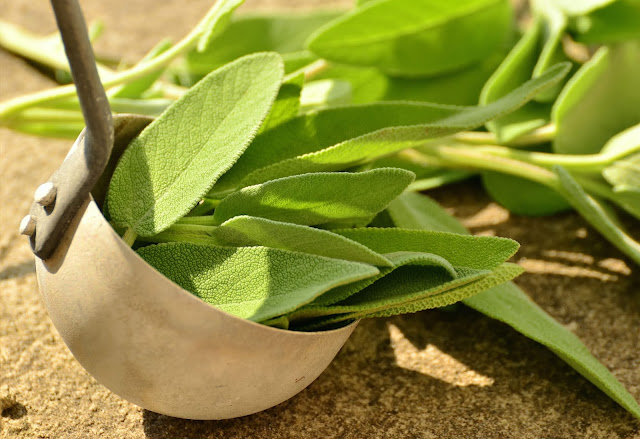The spice of life is variety. Or is it possible that life's flavour is its variety? Spices are beneficial to one's health as well as providing a delicious flavour. Consider the following to get a sense of how powerful they are: A half teaspoon of ground cinnamon contains the same amount of antioxidants as a half cup of blueberries, while a half teaspoon of dried oregano contains the same amount of antioxidants as three cups of raw spinach.
The top Bulletproof herbs and spices are listed here, in order of their efficacy.
Turmeric
Turmeric reigns supreme among spices. It's the most anti-inflammatory, antiviral, antibacterial, anticancer, and antifungal of the bunch, so consume it as much as possible when you're trying to go Bulletproof.
It's used to treat anything from diabetes and allergies to Alzheimer's and arthritis in Ayurveda and Traditional Chinese Medicine. Curcumin, the main element in turmeric, is an antioxidant compound that decreases inflammation and gives the spice its bright yellow colour. (Be careful not to get turmeric on white items; it stains.)
Curcumin has been demonstrated to inhibit cancer cell growth, and if there was ever a reason to eat a spice, I'd say that's it. Turmeric also includes anti-inflammatory ingredients that reduce swelling and pain while also preventing plaque formation in the brain, which causes Alzheimer's disease.
So, what's the bottom line? Increase your turmeric intake. Salad sauces, meat and fish marinades, and even turmeric-infused tea, coffee, or lemonade can all benefit from it. It's surprisingly delicious.
Read More: Benefits of Turmeric
Chile Peppers and Cayenne
Capsaicin, the main element in cayenne, is responsible for the chilli pepper's therapeutic properties as well as its intense heat.
The more capsaicin a pepper possesses, the hotter it is. Native American healers preferred cayenne for digestive and circulatory disorders, in addition to its long history of medical usage in India and China.
Capsaicin, while its many positive attributes, has certain drawbacks. Cayenne, like black pepper, is prone to high levels of mould toxins, therefore adequate sourcing and storage are essential.
Cayenne is an excellent source of antioxidants that combat free radicals and protect against cell damage, which often presents as premature ageing when properly sourced and stored.
Although there are interesting research happening to see if cayenne suppresses cancer cell proliferation, the science is still in its early stages.
Ginger
Ayurveda and Traditional Chinese Medicine have traditionally utilised ginger to battle inflammation and discomfort, calm painful muscles, and alleviate aches and weariness.
It's also a popular digestive aid because it battles an overabundance of bad bacteria in the gut. Ginger contains chemicals that are similar to anti-inflammatory medications like ibuprofen, which are used to treat arthritis.
If more people were aware of this, they might be able to benefit from ginger tea or Asian cuisine.
Ginger can also help with sore throats, colds, and, believe it or not, you can use a compress to apply it directly to a painful joint for relief through skin contact. Ginger, like all spices and herbs, requires proper preservation.
Mycotoxin contamination is a problem with poorly handled ginger powder, and raw ginger can mould in the fridge. So, while I encourage you to use and eat ginger on a regular basis, buy it fresh, use it up, and dump the rest.
If you want to go the powdered route (which will be less potent), make sure to keep it away from heat, light, and moisture.
If you're going to cook with ginger and utilising oil, do so at the end because it can become bitter when cooked with fat. Also, if you enjoy your sushi with ginger, choose the yellow version. Artificial dye was used to tint the pink items you see in some eateries. Both contain sugar, but the yellow variety is preferred.
Cinnamon
Cinnamon is most known for its potential to help diabetics lower their blood sugar levels.
Cinnamon, like its spicy relatives, has antioxidant and anti-inflammatory chemicals that lower the risk of cellular damage and chronic disease.
It has been found to protect against heart disease by preventing blood platelets from clumping together and inhibiting aberrant cell growth, making it a potent anticancer agent.
Cloves
Cloves are high in antioxidants, which help preserve cells by scavenging free radicals. In addition, whether ingested or used topically, they are a potent antifungal in the body.
But be careful: clove oil is a strong substance. It's so powerful that if you use it too much, it might be toxic. When possible, I recommend using whole cloves.
Read More: Some Health Benefits of Moringa Leaves
Sage
It should come as no surprise that sage contains anti-inflammatory chemicals that add to its flavour and scent.
Sage is known to protect against inflammatory-based neurological disorders such as Alzheimer's, and it also has the potential to improve memory and focus.
Antioxidant and anticancer properties are also found in its components. Its extracts, which are high in camphor, may be utilised to destroy bacteria and fungi, making it a potent spice to consume or use in a natural kitchen cleaning solution.
Rosemary
Rosemary, like sage, has antioxidant and anti-inflammatory properties. It boosts the activity of an enzyme that gets rid of the free radicals that cause chronic inflammation.
This is especially true when the herb is cooked, so use it freely in savoury cooked vegetables, meats, and other meals.
The flavonoids in rosemary have been demonstrated to suppress the growth of pancreatic cancer cells and prevent haemorrhoids, so you can consume them uncooked.
A tip about rosemary: If you're going to cook something in oil, add some rosemary because rosmarinic acid is an antioxidant that will help prevent the oil from oxidising.
Read More: Benefits of Aloe Vera







